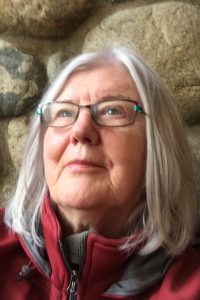 |
Dr. Gloria Snively is Professor Emeritus at the University of Victoria where she taught science methods, environmental/marine education, and culture courses. She was Director of the Graduate Program in Environmental Education. For 12 years, she was involved with the Asia Pacific Network whose purpose is to strengthen links between the research community and school-based environmental education in the Asia-Pacific region. Her work with Indigenous education spans 4 decades and has always been inspired by Indigenous leaders. She enjoyed giving natural history talks and walks to students, teachers, park interpreters, First Nations and community groups for 50 years; she prefers to explore forest, ponds and seashores first-hand. |
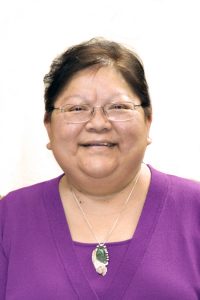 |
Dr. Wanosts’a7 Lorna Williams OBC walking in peace is Lil’wat of the St’at’yem’c First Nation. Her life has been devoted to promoting and restoring Indigenous culture and language. She worked as an Indigenous educator and language specialist for more than 50 years in diverse settings, including Indigenous communities, public schools, and adult education settings. Dr. Williams recently retired from the University of Victoria as Canada Research Chair in Indigenous Knowledge and Learning (co-appointment with Faculty of Education and Department of Linguistics) and an associate professor, where she developed and delivered an innovative series of courses on learning and teaching in an Indigenous world. |
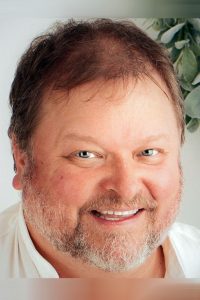 |
David Ashurst has been a secondary science teacher in Victoria for 15 years where he currently teaches senior-Biology, Chemistry and Jr. Science at Oak Bay High School. He earned an MA in First Nations and Environmental Education through UVic in 2009 where his thesis research focused on cross-cultural science education in a marine context. Central to his professional practice is the weaving of traditional knowledge into the existing curricular framework, bringing the topics to life and building a bridge between traditional and western science cultures. Dave has a passion for the outdoors, particularly the coastal environment, and feels that the understanding of traditional ways of knowing is central to connection with and the conservation of this vital environment. |
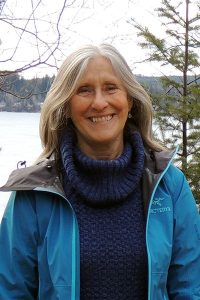 |
Nan Kendy has lived and worked in Northern BC for 30 years on Witsuwit’en and L’heidli Tenneh territories. She taught elementary school in Moricetown and Smithers. Nan completed an MA from the University of Victoria in Environmental and First Nations Studies in 2007 and worked as a sessional instructor in the School of Education at the University of Northern BC in Prince George until 2012. Retired, she lives outside Prince George on Nadsilnich Lake where she is president of her community association and actively involved in protecting the quality of the lake water for her grandchildren. Nan ran as a candidate for the Green Party for her riding of Prince George-Valemount in the 2017 Provincial Election. |
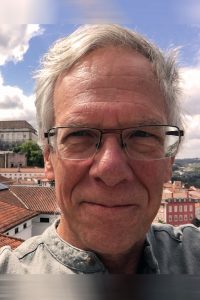 |
Dr. Rick Kool is a transplanted Bostonian who has been a teacher for a long time: science teacher at Ucluelet Secondary School in the mid-1970s, biology and ecology instructor at Douglas College, educator and interpreter at the Royal BC Museum and BC Parks, and co-creator of the MA program in Environmental Education and Communication at Royal Roads University. His research interests have ranged from the ecology of single-cell animals living in sand and mud to the walking speed of dinosaurs, from the errors anthropologists made in understanding Nuuchanulth whaling practices to an examination of various forms of environmental violence. |
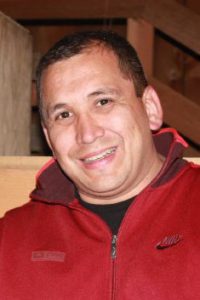 |
Mupenkin John Lyall is from Gwa’yasdam’s on Gilford Island and is Kwakwaka‘wakw. John received his BSc (physics/math) in 1998, his MA in 2009, both from UVic. John has taught for 16 years including Kingcome Inlet and Vancouver Island, with a strong focus on Aboriginal education. John has had two articles published as a co-author. He was a vice principal at Spencer Middle School, Victoria, where he developed an Aboriginal Awareness class in order to increase awareness and understanding of Aboriginal ways of knowing for all students. He is currently a vice principal at Edward Milne Community School in SD 62 Sooke. |
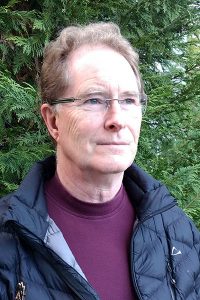 |
Dr. Ted Riecken is a professor in the Department of Curriculum and Instruction in the Faculty of Education at the University of Victoria. During his career as an educator he has worked as an elementary school teacher, a university teacher and researcher, and as a dean of education. His co-authored chapter in this book with Mupenkin John Lyall grew out of a collaborative research project that engaged Aboriginal youth in making digital videos about their community, culture, and environment. It was this project that opened Ted’s eyes to the importance of two-eyed seeing. His current research interests include educational change and innovation, Indigenous pedagogies, and alternative forms of teaching and learning. |
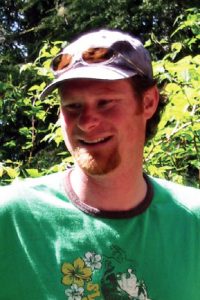 |
Tye Swallow completed his BEd, secondary program, in 1998 and MA in Curriculum and Instruction in 2005. He has taught in the Saanich and Central Coast School Districts. Since 2001, Tye has worked at the Saanich Adult Education Centre, part of the W̱SÁNEĆ School Board (W̱SB) near Victoria B.C., and has taught senior Biology, Geography and science to adult learners. He co-created ÁLEṈENEȻ: Learning From Homeland with the W̱SÁNEĆ community in 2005, which has since seen several iterations and is now part of the core curriculum of the SENĆOŦEN LENOṈET SCUL,ÁUTW̱ preschool, Kindergarten to Grade 4 SENĆOŦEN Immersion school. Since 2009 he continues to help facilitate Language Revitalization at the W̱SB through the SȾÁ,SEN TŦE SENĆOŦEN language apprenticeship program with Elders, current and future teachers of W̱SÁNEĆ. |
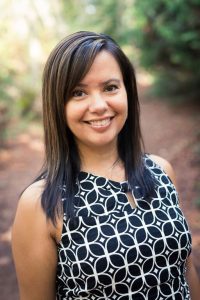 |
Anne Tenning is a member of the Stz’uminus First Nation on Vancouver Island. She has a BA and a BEd from UBC, and an MA from UVic. She has been an educator for 17 years, working as a secondary teacher, an academic counselor for Aboriginal students, and currently as the District Vice Principal of Aboriginal Education in School District 68 Nanaimo Ladysmith. Anne is passionate about increasing Aboriginal perspectives and understandings in education, particularly the lasting legacy of residential schools. Anne’s mother, Elizabeth Tenning, is a survivor of the Kuper Island Indian Residential School. In 2008, Anne was a recipient of the Governor General’s History Award for Excellence in Teaching and in 2015 the recipient of the UVic Distinguished Alumni Award for the Faculty of Education. |